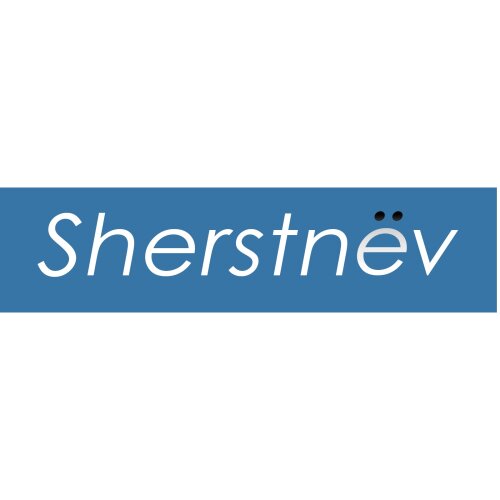Best Native People Lawyers in Novosibirsk
Share your needs with us, get contacted by law firms.
Free. Takes 2 min.
List of the best lawyers in Novosibirsk, Russia
About Native People Law in Novosibirsk, Russia
In Novosibirsk, Russia, the term 'Native People' typically refers to indigenous groups who have traditionally inhabited the region. While Novosibirsk does not have a substantial indigenous population compared to some other areas of Siberia, there are still legal frameworks in place that recognize and protect the rights of indigenous peoples in Russia. These laws may cover aspects such as cultural preservation, land rights, and self-governance.
Why You May Need a Lawyer
Legal advice might be necessary for Native People in several scenarios. Indigenous individuals or communities may require assistance in asserting their land rights, dealing with discrimination, obtaining legal recognition for traditional practices, or navigating agreements related to natural resource development on indigenous territories. Lawyers specialized in indigenous law can also help with participating in regional and federal decision-making processes or accessing government services and programs dedicated to Native People.
Local Laws Overview
Several laws are of importance to Native People in Novosibirsk, and throughout Russia, including the Constitution of the Russian Federation, which recognizes the rights of indigenous peoples. Specific regional legislation may also offer protections or outline the recognition of native territories and community structures. Legal instruments such as the Federal Law on Guarantees of the Rights of Indigenous Peoples and the Convention on Indigenous and Tribal Peoples (ILO Convention No. 169), albeit not ratified by Russia, still guide international expectations for the treatment of Native People.
Frequently Asked Questions
1. What defines 'Native People' in the context of Russian law?
In Russian legislation, 'Native People' usually refers to ethnic groups who are fewer in number, maintain traditional ways of life, inhabit certain areas, and identify themselves as distinct communities.
2. Are there specific territories reserved for Native People in Novosibirsk?
While not as prominent in Novosibirsk, there are designated territories elsewhere in Russia. Legal consultation can help understand the status of such lands in the Novosibirsk region.
3. How can a lawyer assist with land rights issues?
A lawyer with expertise in indigenous law can help advocate for the rights of Native communities, defend against illegal encroachments, and guide through the process of land claims.
4. Is there legal support for preserving indigenous languages and cultures?
Russian law does include provisions for the protection and revival of indigenous languages and cultures, and a lawyer can advise on how these provisions can be leveraged.
5. Can indigenous peoples have a degree of self-governance?
Self-governance possibilities exist within the framework of Russian law, and a lawyer knowledgeable in native laws can help a community explore its legal options.
6. What are the rights of Native People regarding natural resources on their lands?
Native People have certain rights to participate in decision-making processes on natural resources extraction and to receive compensation. A specialist lawyer can provide detailed guidance.
7. Can discrimination against Native People be legally addressed?
Yes, the law protects against discrimination on ethnic grounds, and legal action can be taken if such discrimination occurs.
8. What government programs are available to support Native People in Russia?
There are several government programs aimed at social, economic, and cultural development for Native People which can be navigated with legal help.
9. Are there any international laws affecting Native People in Novosibirsk?
While international laws such as the UN Declaration on the Rights of Indigenous Peoples are not directly enforceable in Russia, they can be referenced in legal arguments and advocacy.
10. How can indigenous voices be heard in regional policy-making?
Engaging a lawyer can aid in effectively advocating for participation in regional decision-making processes and ensuring that the rights and perspectives of Native People are considered.
Additional Resources
Several resources can provide assistance and additional information for Native People seeking legal advice. These include local non-governmental organizations specializing in indigenous rights, cultural centers, and academic institutions with programs dedicated to indigenous studies. Additionally, the Russian Association of Indigenous Peoples of the North (RAIPON) provides support and advocacy on a larger scale.
Next Steps
If you or your community needs legal assistance, the first step is to consult with a lawyer who has expertise in Native People law. It is important to select someone with a deep understanding of the unique legal circumstances affecting indigenous communities. You may also want to reach out to local advocacy groups or community organizations that can provide support and additional resources to navigate through your legal matters.
Lawzana helps you find the best lawyers and law firms in Novosibirsk through a curated and pre-screened list of qualified legal professionals. Our platform offers rankings and detailed profiles of attorneys and law firms, allowing you to compare based on practice areas, including Native People, experience, and client feedback.
Each profile includes a description of the firm's areas of practice, client reviews, team members and partners, year of establishment, spoken languages, office locations, contact information, social media presence, and any published articles or resources. Most firms on our platform speak English and are experienced in both local and international legal matters.
Get a quote from top-rated law firms in Novosibirsk, Russia — quickly, securely, and without unnecessary hassle.
Disclaimer:
The information provided on this page is for general informational purposes only and does not constitute legal advice. While we strive to ensure the accuracy and relevance of the content, legal information may change over time, and interpretations of the law can vary. You should always consult with a qualified legal professional for advice specific to your situation.
We disclaim all liability for actions taken or not taken based on the content of this page. If you believe any information is incorrect or outdated, please contact us, and we will review and update it where appropriate.








